Explore the Best AI Image Gallery
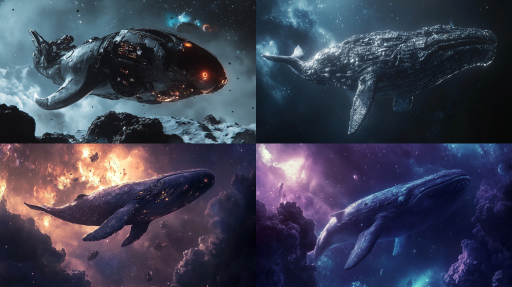
Navigating the Ethics of AI-Generated Media
In recent years, the advent of artificial intelligence (AI) has sparked a revolution in various creative fields, allowing for the generation of media that challenges traditional notions of authorship, creativity, and ethics. AI-generated media encompasses everything from visual art and music to video and literature. However, as we embrace these technological advancements, we must critically assess the ethical implications, ensuring that creators, audiences, and society at large navigate this complex landscape responsibly.
The Impact on the Creative Industry
The use of AI in the creative sector has both transformative potentials and significant implications. On one hand, AI tools can enhance efficiency, streamline production processes, and aid artists in pushing the boundaries of their creativity. For instance, musicians can utilize AI to compose new melodies or find unique sounds that might not have been explored otherwise. Visual artists can generate stunning digital artwork with the help of AI algorithms that process vast datasets of existing art forms.
Yet, as AI technologies become more integrated into creative workflows, a pressing question arises: Who owns the rights to AI-generated content? Traditional copyright laws are often ill-equipped to handle works that involve substantial input from AI. Some argue that AI should not hold any copyrights, while others propose new frameworks that recognize the contributions of both the human and the machine.
Potential Uses of AI-Generated Media
AI-generated media offers a plethora of applications across various industries:
- Marketing: Brands are increasingly utilizing AI to create personalized content that resonates with individual consumers, leading to improved engagement rates.
- Entertainment: AI is crafting scripts and generating music that can accompany films and video games, enhancing storytelling techniques.
- Education: AI can tailor educational content to suit the needs of individual learners, thereby making it easier for students to grasp complex concepts.
- News Media: AI tools assist in summarizing news articles, providing a way to deliver information quickly and efficiently, although this raises concerns about misinformation and bias.
Ethical Considerations
Despite its potential, the ethical considerations surrounding AI-generated media are multifaceted and significant. The following concerns must be addressed:
- Authenticity: As AI-generated media becomes more mainstream, discerning the authenticity of creative works becomes increasingly challenging. How do we ascertain whether a piece of art or music is genuinely original or simply a remix of existing styles?
- Bias and Representation: AI systems are trained on data sets that may contain inherent biases, which can lead to the perpetuation of stereotypes or the marginalization of certain groups. This poses risks in educational tools and media representation that must be vigilantly monitored.
- Accountability: If an AI creates content that infringes on copyright or causes harm (for instance, deepfakes), determining who is responsible becomes a legal dilemma. Is it the software developers, the end-users, or the AI itself?
- Job Displacement: As AI continues to automate various creative tasks, there are valid concerns about job displacement for human artists. Striking a balance between employing AI as a tool for enhancement rather than replacement is crucial.
Future Trends
Looking ahead, the trajectory of AI-generated media is promising yet requires careful consideration. As AI technologies evolve, we can expect:
- Enhanced Collaboration: Artists from all backgrounds may increasingly collaborate with AI to create groundbreaking pieces, pushing the boundaries of creativity.
- New Legal Frameworks: The landscape of copyright and intellectual property is likely to change, with new laws emerging to address the complexities of AI ownership.
- Ethical Standards: As awareness grows, the creative industry may establish ethical guidelines and standards for the use of AI, similar to existing codes of conduct.
In conclusion, while AI-generated media opens up exciting avenues for artistic exploration and innovation, it also poses significant challenges that must not be overlooked. It is essential for artists, technologists, and policymakers to engage in ongoing discussions about the ethical implications of this emerging field. Only through thoughtful consideration and collaboration can we navigate the future of AI-generated media responsibly, ensuring it serves humanity while respecting the essence of creativity and artistic expression.



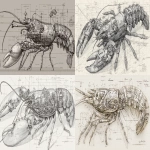






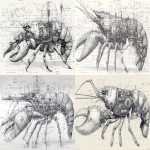





](https://images.ai-img.art/thumbnails/150/eef24b73be7aff90887fa84e17197f8779e355efee60a78764ddc04a3c05ead1.webp)





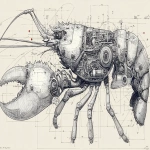
](https://images.ai-img.art/thumbnails/150/6b5ff04e6006f3b97dd36eaec548e34255713276a4bf8dc9fd72dc11b7313f39.webp)




](https://images.ai-img.art/thumbnails/150/2d4ea5195083ca7b2d3b582e81252dd22f60af65e47d2869b902779447aef5b6.webp)
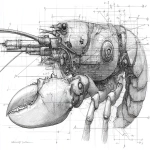
](https://images.ai-img.art/thumbnails/150/de2c068895a12730e04e9ae6ff88098cad56c69fe790f7696fde12227d56450b.webp)





](https://images.ai-img.art/thumbnails/150/005584f3955a233f0b74db7d02caa6d62f861640781eac80962d9b1631f410d0.webp)

](https://images.ai-img.art/thumbnails/150/e30ebd22be803c7de05fcb5dd6652965dec130df7d6574e7ca3a8591dbce8f2a.webp)







](https://images.ai-img.art/thumbnails/150/bce9cceb80b7d5238edfa28ed5e3a2be25fb5d8ca48c96f4d1a07205c5b15b4a.webp)

](https://images.ai-img.art/thumbnails/150/3214e988d4008f30c5a037acca1b4351055bd6ec65df0884fcdccd09d46c748c.webp)
